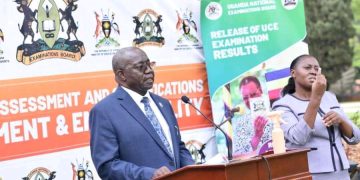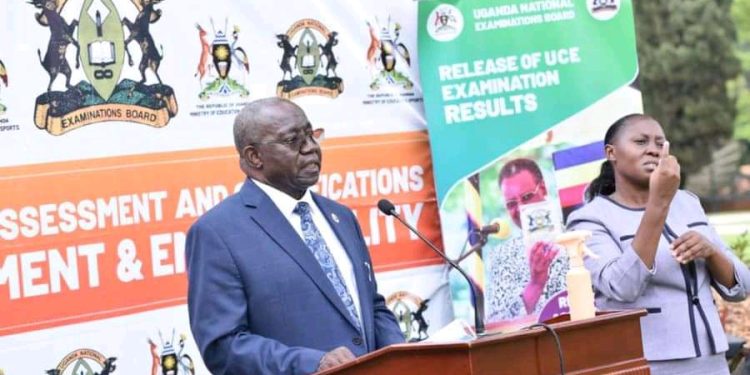A total of 15,756 students failed the 2022 Uganda Certificate of Education (UCE) exams, according to the Uganda National Examinations Board (UNEB).
According to the board’s executive director, Dan Odongo, a total of 345,695 candidates sat for the examinations out of 345,945 who registered for the examinations.
He noted that 46,667 passed in division one, 76,745 in second division, 88,690 in the third division and 117,837 passed in division four.
However, a total of 15,756 failed the examinations. This is a representation of 4.6% of the total 345,695 candidates who sat for UCE exams in 2022.
The number is, however, lower than the 18,415 who failed UCE exams the previous year in 2021.
Sciences
Odongo said in sciences, the problems have remained the same in recent years with candidates showing weaknesses in the handling of apparatus during the practical tests.
He noted that noted weaknesses were also shown in making and recording observations and drawing conclusions from those observations; tabulation of experimental results and interpretation of the results to meet the demands of the question.
“They also showed poor Mathematical skills required in calculations, inability to write the correct symbols of elements, formulae of compounds and equations, among others. Many candidates take measurements and tabulate the readings and stop on that, being unable to do anything else with the tabulated data,” Odongo said.
UNEB said many candidates showed a lack of practical experience in handling the apparatus as many schools tend to handle practical aspects of the curriculum much later in the course.
“As a result, students do not develop the necessary skills. This could explain why most malpractice cases are in Science practical papers,” he said.
UNEB said that whereas this year there was better quality work in the English language, in composition writing where candidates are expected to exhibit creativity and originality, in some schools, many are still cramming passages from textbooks with unusual and difficult vocabulary.
“They then reproduce the crammed passages irrespective of what the composition topic is. This practice is, fortunately, declining, because candidates who do this are punished.”
UNEB added that in the comprehension of passages, candidates found difficulty in extracting appropriate information to use to correctly answer the questions based on the passage.
“There are also weaknesses in using the correct grammar in sentence construction. The essential skill of extracting main ideas from a passage and writing out a coherent summary presents a major challenge to most candidates.”
Odongo said the challenge of language deficiency is reflected in performance in other subjects, where there is the failure by the candidates to interpret the demands of the tasks set, failure to follow instructions, misunderstanding keywords used in the stem of a question, and generally poor language expression.









